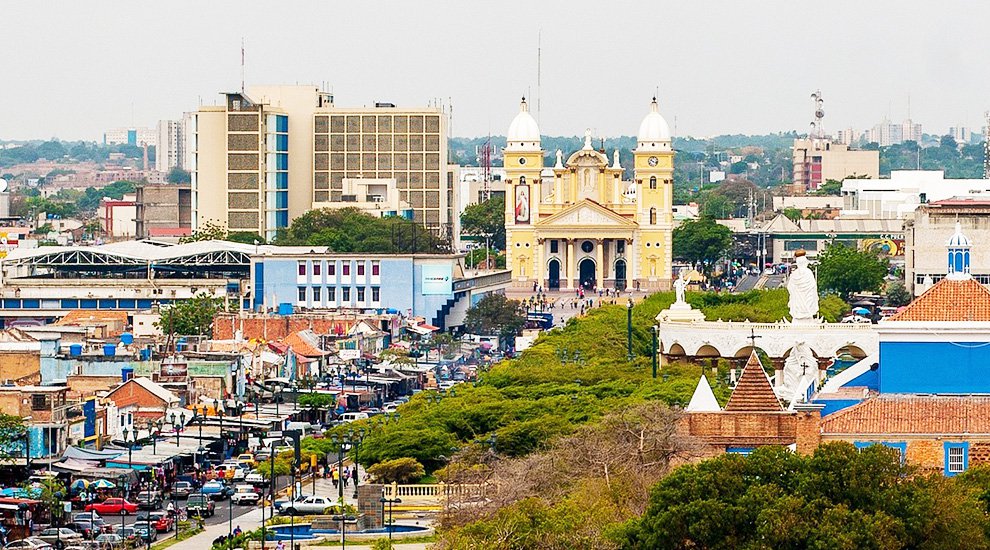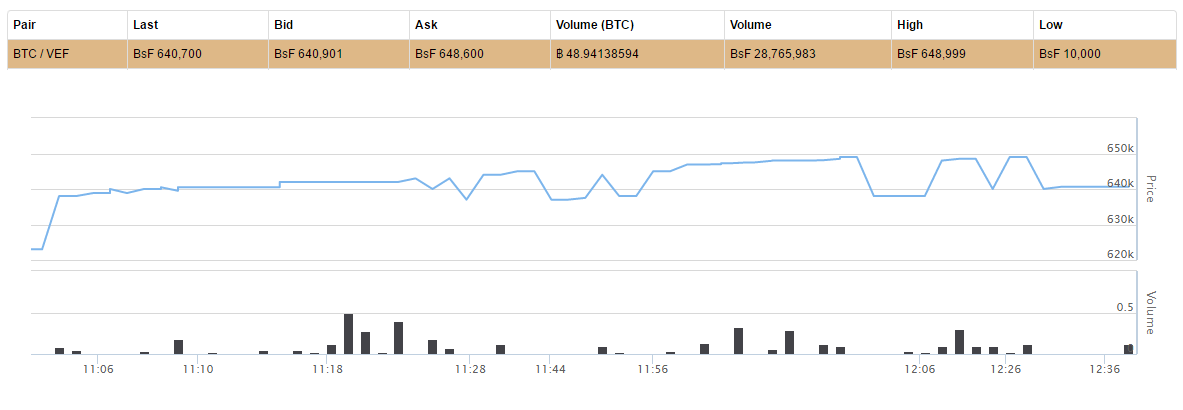Venezuela’s Inflation to Reach 1,600% in 2017, Spurring Demand for Bitcoin
The weakening economy of Venezuela under the regime of President Nicolas Maduro is forecast by the International Monetary Fund to reach a consumer-price inflation rate of 480 percent by the end of this year, and peak at 1,640 percent in 2017.
Venezuela’s growing financial crisis and economic collapse also pressured the government to announce a state of “economic emergency,” which immediately gave the Venezuelan government full control over the goods, assets, properties and food of private companies.
The state of “economic emergency,” which was extended for another 60 days by Maduro on July 13, basically requires every company registered under the Venezuelan regulatory framework — both private and public companies — to give up their capital to the government to settle its outstanding financial debt.
The rapidly growing inflation rate and fears of forceful seizure of company assets by the government have driven a surge in demand for foreign currencies, including U.S. dollars, that can be transported out of the country and protected from seizure by the Venezuelan government.
According to various reports, the black market rate for U.S. dollars has increased to 1,000 Venezuelan bolivars per dollar, which is 100 times higher than the official government rate of 9.95 bolivar per dollar. The Venezuelan black market data displays a staggering 82 percent decrease in the value of the national currency in a span of 12 months.
Since mid-2015, the U.S. dollar and other international currencies including Bitcoin have been perceived as ideal alternatives to the bolivar for both businesses and individuals because of the high international value of these two currencies.
The U.S. dollar, which leads the world’s M1 money supply rankings, possesses the highest international exchange and conversion rate among all national currencies. Bitcoin, a digital currency based on a decentralized network of computers, offers its users ideal international conversion rates because of its decentralized, established international infrastructure and high liquidity.
As the government’s control over the flow of U.S. dollars and other foreign currencies in the Venezuelan black market has tightened, Venezuelans have began to search for alternatives such as Bitcoin to store their wealth.
The increase in the demand for Bitcoin directly led to the explosive growth of Local Bitcoins Venezuela, a platform whereby Bitcoin buyers and sellers can process in-person trades without the involvement of an exchange. The demand for Bitcoin exchanges surged, with the country’s first Bitcoin exchange, SurBitcoin, offering a platform for Venezuelans to purchase bitcoins through conventional bank payment methods.
Naturally, as demand for bitcoins began to increase, the volume of the country’s only Bitcoin exchange spiked, reaching a 24-hour volume of 48 BTC or $31,200.
Although the daily trade volume of SurBitcoin is substantially lower than established Bitcoin exchanges in the Bitcoin market, the exchange is observing hundreds of buy orders on a daily basis, which, considering the financial instability of the Venezuelan economy, is extremely optimistic.
Earlier this month, the price of Bitcoin for both buy and sell orders in Venezuela reached the lowest rate in the entire Bitcoin market, hitting $407, while other major exchanges including Bitstamp and Kraken averaged at $635. This crash was due to the exchange’s trouble integrating one of the main domestic banks in Venezuela that has been used to settle most of the trades on the platform.
Despite the negative press, economic instability, and panic sale of Bitcoin on SurBitcoin, its daily volume has increased continuously since the exchange reopened on July 16, after suspending operations for a few days in order to deal with a series of legal issues and conflicts with an individual who had threatened a few of the exchange’s key officers.
The post Venezuela’s Inflation to Reach 1,600% in 2017, Spurring Demand for Bitcoin appeared first on Bitcoin Magazine.




